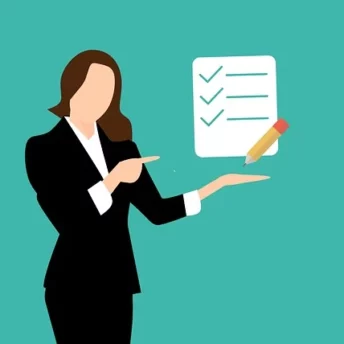The complete process of administering a deceased person’s estate is referred to as probate. This includes organising their money, assets, and other things, and distributing them as an inheritance – after paying any taxes and bills that may be owed on them. If the deceased person has left a will, it will specify who they want to be in charge of managing their estate when they pass away. The name given to this individual in the will is that of the “executor.” In this article, what probate means, we take a look at these issues in more depth.
Please click here to find out more about our Wills and Probate services
Free Initial Telephone Discussion
For a free initial discussion with a member of our New Enquiries Team, get in touch with us today. We are experienced in dealing with all the legal aspects of wills and probate, and once instructed, we will review your situation and discuss the options open to you in a clear and approachable manner. Early expert legal assistance can help ensure you are on the best possible footing from the start and also avoid the stress of dealing with these issues on your own. Simply call us on 0345 901 0445 or click here to make a free enquiry and a member of the team will get back to you.
What does grant of probate mean?
After someone has passed away, a grant of probate is a type of legal document that is sometimes required in order to access bank accounts, liquidate assets, and settle debts.
If the deceased person had a will, then this piece of paper would be called a grant of probate. A grant of letters of administration is used if the deceased person did not leave a will. Both documents function in a manner that is very similar, in that they confer onto a specific individual the legal authority to manage the deceased person’s estate.
After the grant of probate, the next of kin or the executor of the will can begin to deal with the assets left behind by the deceased person. If there was a will, this document specifies how the assets should be divided up after the decedent’s death. In the event that the deceased individual did not leave a will, the law will decide who should receive everything.
If there is a will, do I need to go through probate?
It is not the presence or absence of a will that determines whether or not there is a need for the probate process; rather, it is the state of the deceased person’s finances. Whether or not there is a will, the process is very similar; however, some of the terminology is different depending on the circumstance.
Do I need to go through the probate process for a little estate?
It is dependent on the total worth of the estate as well as the value of the various assets. If the deceased person leaves behind a little estate that does not include any real estate and has less than £5,000 in liquid assets, probate may not be required. This is due to the fact that some assets and sums of money under a certain threshold can be handled outside of the probate process.
Because financial institutions like banks and others set their own boundaries for probate, it is important to confirm with such institutions whether or not they require a grant of representation. Even if the bank doesn’t need to go through the probate process, they may still require a Statutory Declaration to be filled out before they release the money. This ensures that the bank is giving the money to the appropriate person.
How Much Time Does the Probate Process Take?
In most estates, this will take roughly a year to complete. The precise period of time required will be based on the magnitude and complication of the estate. Probate that takes place on a global scale might be more difficult and often takes between six months and two years to complete. During the process of probate, disagreements can occasionally arise between the executor, the beneficiaries, the creditors, or the tax authorities. The administration of the estate could be slowed down by these disagreements.
How exactly does the process of probate work?
Every person leaves their estate in their Will in their own unique way. The instructions that were left in the will, as well as the assets, creditors, and beneficiaries that the estate has, can all have an impact on the specifics of the probate procedure. The following is the basic procedure for an executor:
- Collect the complete information regarding the estate’s assets and liabilities.
- Make an Application for the Grant of Probate (permission to administer the estate and distribute inheritance)
- Fill out an inheritance tax return and make any necessary tax payments.
- You receive a grant of probate
- Make good on any unpaid obligations that belonged to the deceased.
- Proceed to distribute the remaining assets of the estate in accordance with the directions provided in the will.
In the event that the executor, beneficiaries, creditors, or HMRC are involved in a dispute of any kind, the probate process may become more complex.
How we can help
We have a proven track-record of advising upon all aspects of private client work. We will guide you through the process and ensure all checks are carried out swiftly and efficiently and we firmly believe that with the right solicitors by your side, the entire process will seem more manageable and far less daunting.
Deciding when (or whether) to incorporate, what kind of ownership
How to Contact Our Private Client Solicitors
It is important for you to be well informed about the issues and possible implications of wills and probate. However, expert legal support is crucial in terms of ensuring a positive outcome to your case.
To speak to our Wills and Probate solicitors today, simply call us on 0345 901 0445, or click here to make a free enquiry. We are well known across the country and can assist wherever you are based. We also have offices based in Cheshire and London.
Disclaimer: This article provides general information only and does not constitute legal advice on any individual circumstances.





